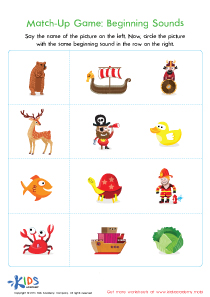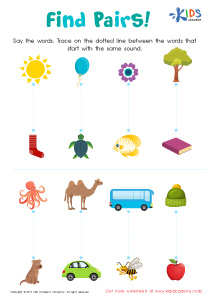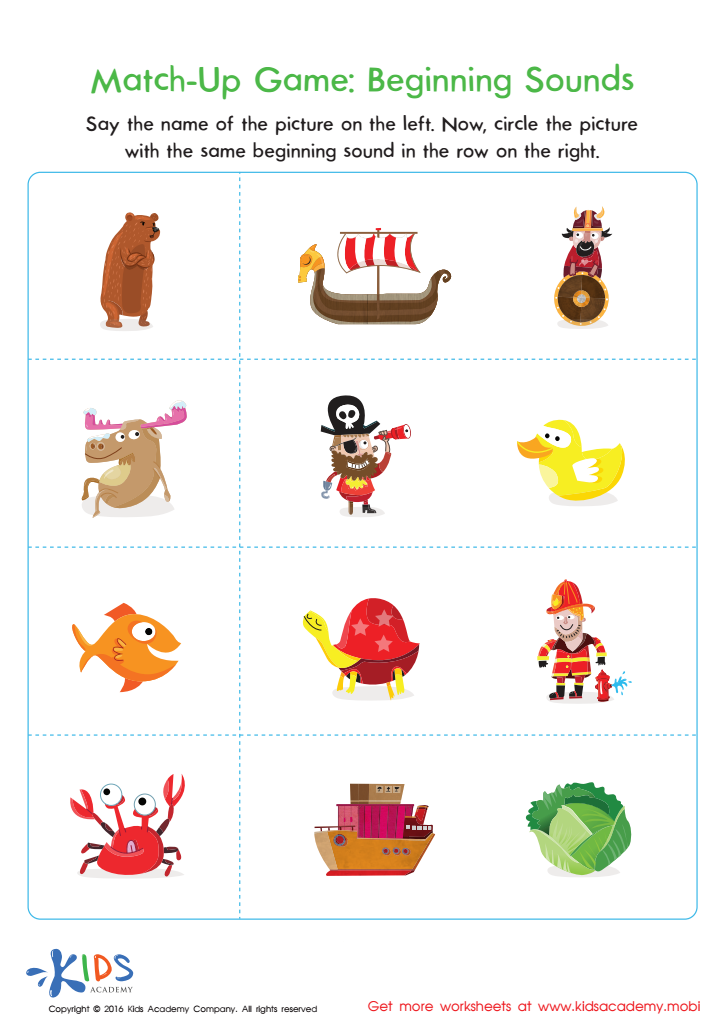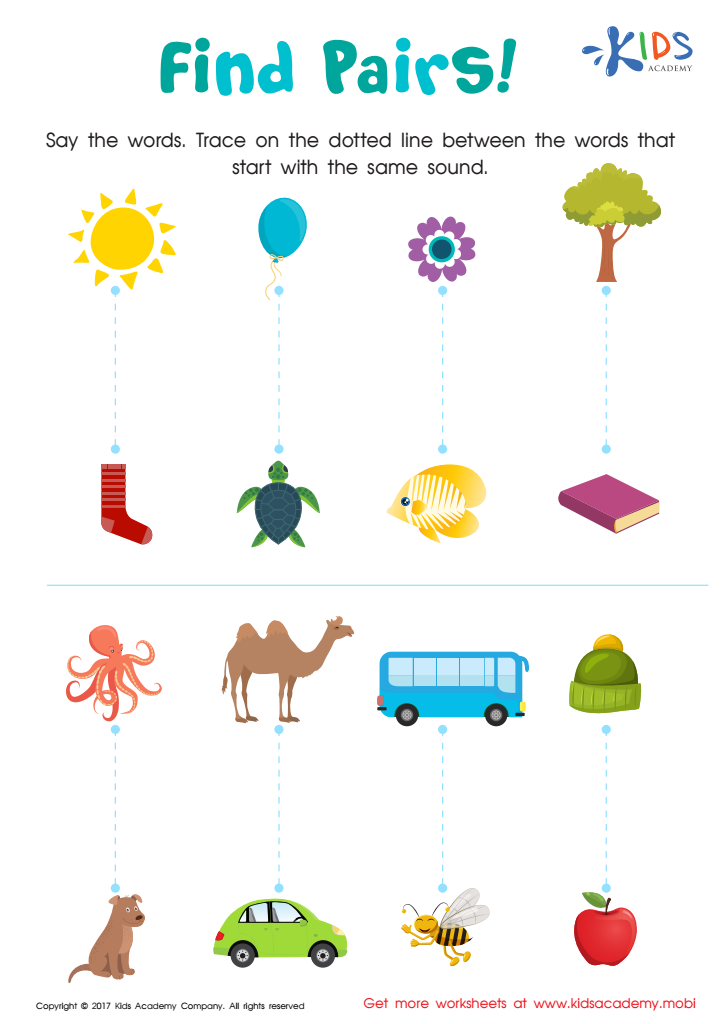Isolate and Pronounce Initial Sounds in Words - Lesson for Preschool, Chapter - Phonological Awareness
In the lesson titled "Isolate and Pronounce Initial Sounds in Words," preschool students embark on an engaging journey into the realm of Phonological Awareness, a pivotal chapter within the Early Literacy Skills unit. Through interactive activities such as the Match-Up Game: Beginning Sounds Worksheet and the Beginning Sound: Find Pairs Worksheet, learners will develop a foundational understanding of how to isolate and pronounce the initial sounds in words.
This skill is instrumental for young learners as it lays the groundwork for effective reading and spelling. By recognizing and manipulating the first sounds of words, students enhance their phonemic awareness, a critical component of early literacy. This ability facilitates the decoding process, where children begin to understand that words are made up of individual sounds, leading to improved reading fluency and comprehension over time. Moreover, mastering initial sounds helps in building a robust vocabulary, enabling children to categorize words, comprehend their meanings, and expand their language skills. Engaging in these activities not only boosts confidence among young readers but also fosters a lifelong love for reading and learning.


-
Activity 1 / Match–Up Game: Beginning Sounds Worksheet
Most of us have been out of the classroom long enough to forget some of the earliest subjects we studied in school. One of those long-forgotten subjects is phonics, which plays an integral role in helping little talkers become little readers and writers. Phonics is the relationship between letters and sounds in language. This means that kids need to learn common words and which letters they start with.
Since phonics is so important, you might be wondering how and where to start with your little learner. Look no further! This beginning sounds match-up printable is the perfect way to start practicing phonics with your future reader.
Here’s how this match-up game can benefit your child:
• Since there are no hints, your child will use their memory and cognition to think about what letter each picture begins with. This means that your child must draw solely from memory, thinking through each picture to determine what letters are associated with which words. This allows your child to develop stamina and focus.
• Your child will notice that no matter what the picture is, if the word starts with the same letter, it’s a match. Take your child past simple classification and categorization. Now your child must categorize pictures based on different rules—early phonics skills.
It’s vitally important to teach children to solve problems mentally. Once children master beginning sounds, they can move on to recognizing sounds and letters together in print—building a solid foundation for reading and spelling skills. -
Activity 2 / Beginning Sound: Find Pairs Worksheet
Phonemic awareness is important for readers, especially when learning how to differentiate between hard and soft sounds at the beginning of words. This bright and cheery printable worksheet will give your child the opportunity to make connections in words that start similarly and offer them a visual for recall, which is a valuable pre-reading strategy. They’re common pictures that are easy to identify and easy to match, setting your child up for success with each pairing!



